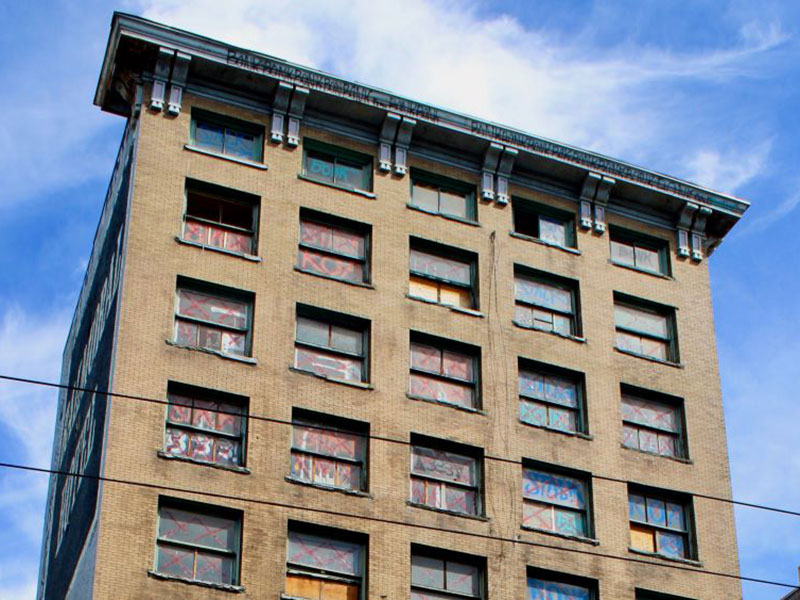Unregulated illicit drugs are the leading cause of death for people aged 10 to 59 in British Columbia, surpassing homicide, suicide, accidents and natural disease combined. But rather than stand firm in evidence-based measures to save lives and combat the devastating consequences of harmful drug policies, the B.C. government introduced legislation that threatens to sabotage their own work on Oct. 4.
The bill proposes drastic new limitations to the decriminalization pilot they launched just eight months ago: prohibiting drug use in most public spaces, targeting people experiencing homelessness, hollowing out decriminalization’s intent and exacerbating many harms decriminalization aims to reduce. The proposal lacks evidentiary basis and raises grave concerns about the government’s commitment to its own stated priorities of reducing harm, destigmatizing drug use and preventing fatal overdose.
Enforcement has not decreased drug availability or use, is extremely expensive, and is clearly linked to an increased risk of overdose and cycles of homelessness.
A key aim of decriminalization is to decrease arrest and incarceration of people who use drugs. In this regard, decriminalization was working: preliminary data from February to July 2023 show a promising 76 per cent reduction in drug possession offences compared to the previous four-year average.
Despite this, the proposed legislation would increase criminalization and do nothing to address the root causes of the crisis.
It would empower police to arrest individuals in most accessible public spaces if individuals do not immediately cease consuming a criminalized substance or leave the area upon police demand. The offence for not leaving a park: a possible fine up to $2,000 or months in jail.
That is a harsher punishment than one would likely have received under criminal law.
A disproportionate impact on those who are already vulnerable
Criminalizing public drug use targets people who are unhoused or in poverty. Because drug laws have made the unregulated market so dangerous, public space may actually be the safest place to use drugs, particularly in communities without adequate supervised consumption services.
Being somewhere visible ensures proximity to help. And if you’re unhoused, you’ve often got nowhere to be but public space. The provincewide homeless counts for 2023 show the number of people experiencing homelessness increased since 2020 in every reporting community, including a 32 per cent increase in Metro Vancouver. This law will push people out of sight and into further danger, and embolden stigma, misinformation and fear.
If this government were genuinely committed to meaningful action, they would focus on swift expansion of overdose prevention sites across B.C., following through on 2016’s never-enforced ministerial order under the Emergency Health Services Act before ever considering measures like these.
Further, an engaged government would significantly increase access to alternatives to the unregulated supply to reduce overdose risk, implement oversight of unregulated for-profit treatment services, and improve access to evidence-based, voluntary treatment.
But the government didn’t do any of that. Instead, they took a cowardly and dangerous step back.
People created these policies. People have the power to change them
B.C.’s regressive move is not even supported by its own experts. Decriminalization has widespread support amongst public health and policy experts, including B.C.’s provincial health officer Dr. Bonnie Henry and chief coroner Lisa Lapointe.
The backslide does, however, reflect a broader misinformed trend across Canada, with some jurisdictions doubling down on a policing and punishment approach, despite mounting expert consensus on its failures.
This fall, police in Peterborough and Edmonton touted a renewed focus on criminalization of drug use in public space, emphasizing arrest and drug seizure.
Though evidence-based approaches may be under attack, these setbacks are a stark departure from a larger generational shift underway in global drug policy. Last month in a historic first, a core United Nations human rights body called for drug regulation and decriminalization, marking a momentous shift in international discourse.
The cracks in the failed drug policies of the last hundred years are widening. Change is indeed possible, and we must not lose sight of that. There is a better way forward. The toxic drug crisis is a policy problem; people created these policies and people hold the power to change them. Shifting to sensible drug laws could make it possible for everyone, whether they use drugs occasionally, regularly, or not at all, to access safety, building stronger communities for us all.
So let’s not turn our backs on the evidence-based policies we need: full decriminalization, equitable access to overdose prevention sites, health care, safe supply, affordable housing, adequate income and evidence-based, voluntary treatment.
The B.C. government must re-evaluate this misguided approach and reaffirm support for sensible, effective policy. We can turn the tide in this crisis: we just need leaders courageous enough to listen to the evidence and do the right thing. ![]()
Read more: Health, Rights + Justice, BC Politics


















Tyee Commenting Guidelines
Comments that violate guidelines risk being deleted, and violations may result in a temporary or permanent user ban. Maintain the spirit of good conversation to stay in the discussion and be patient with moderators. Comments are reviewed regularly but not in real time.
Do:
Do not: